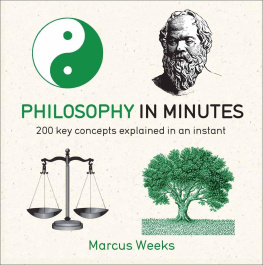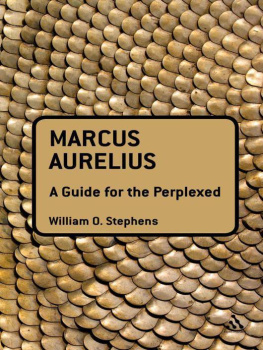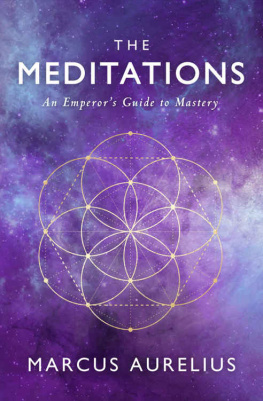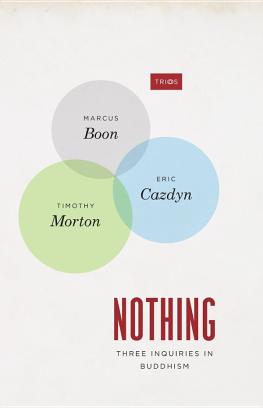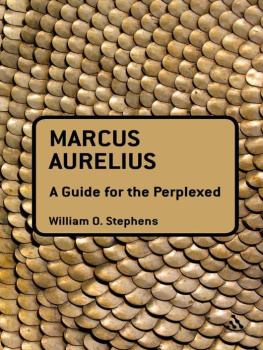Marcus Weeks - Philosophy in Minutes
Here you can read online Marcus Weeks - Philosophy in Minutes full text of the book (entire story) in english for free. Download pdf and epub, get meaning, cover and reviews about this ebook. year: 2014, publisher: Quercus, genre: Religion. Description of the work, (preface) as well as reviews are available. Best literature library LitArk.com created for fans of good reading and offers a wide selection of genres:
Romance novel
Science fiction
Adventure
Detective
Science
History
Home and family
Prose
Art
Politics
Computer
Non-fiction
Religion
Business
Children
Humor
Choose a favorite category and find really read worthwhile books. Enjoy immersion in the world of imagination, feel the emotions of the characters or learn something new for yourself, make an fascinating discovery.
- Book:Philosophy in Minutes
- Author:
- Publisher:Quercus
- Genre:
- Year:2014
- Rating:4 / 5
- Favourites:Add to favourites
- Your mark:
- 80
- 1
- 2
- 3
- 4
- 5
Philosophy in Minutes: summary, description and annotation
We offer to read an annotation, description, summary or preface (depends on what the author of the book "Philosophy in Minutes" wrote himself). If you haven't found the necessary information about the book — write in the comments, we will try to find it.
Philosophy in Minutes — read online for free the complete book (whole text) full work
Below is the text of the book, divided by pages. System saving the place of the last page read, allows you to conveniently read the book "Philosophy in Minutes" online for free, without having to search again every time where you left off. Put a bookmark, and you can go to the page where you finished reading at any time.
Font size:
Interval:
Bookmark:
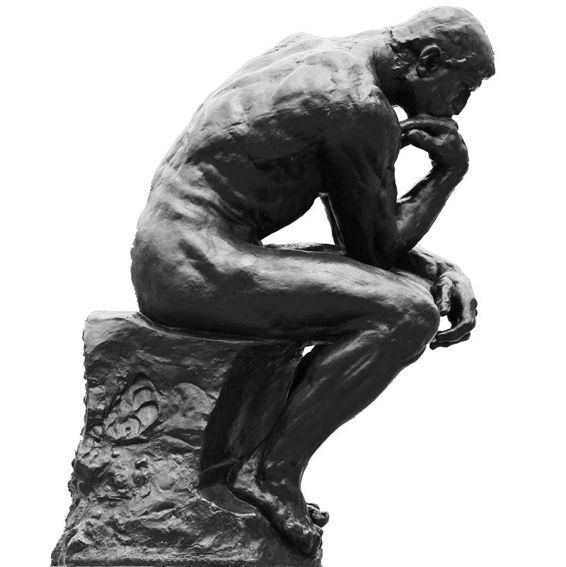
PHILOSOPHY IN MINUTES
MARCUS WEEKS

First published in 2014
Quercus Editions Ltd
55 Baker Street,
7th Floor, South Block
London
W1U 8EW
Copyright Quercus Editions Ltd 2014
Text by Marcus Weeks
Design and editorial: Pikaia imaging
Design assistant: Kathryn Brown
All rights reserved. No part of this publication may be reproduced, stored in a retrieval system, or transmitted in any form or by any means, electronic, mechanical, photocopying, recording, or otherwise, without the prior permission in writing of the copyright owner and publisher.
The picture credits constitute an extension to this copyright notice.
Every effort has been made to contact copyright holders. However, the publishers will be glad to rectify in future editions any inadvertent omissions brought to their attention.
Quercus Editions Ltd hereby exclude all liability to the extent permitted by law for any errors or omissions in this book and for any loss, damage or expense (whether direct or indirect) suffered by a third party relying on any information contained in this book.
A catalogue record of this book is available from the British Library
eBook ISBN 978 1 78206 649 1
Print ISBN 978 1 84866 492 0
You can find this and many other great books at:
www.quercusbooks.co.uk
CONTENTS


Introduction
The word philosophy, like so much else in Western philosophy, is Greek in origin: the original word (philosophia) means love of wisdom, but while that may be a nice description of the subject, it doesnt tell us much about what it actually is.
Perhaps it is best to think of philosophy as being what philosophers do an activity, rather than a study which is to use the human capacity for rational thought to pose and attempt to answer fundamental questions about the universe and our place in it. This may be a broad definition of a very broad subject, but it is a useful way to distinguish philosophy from other ways in which we try to make sense of the world we live in. At its heart, philosophy is thinking: thinking about why things are the way they are, how best we should live our lives, how we can be certain about what we know, and what meaning, if any, there is to our existence. The same questions are asked by religion and science, but while religion gives answers based on faith or belief, philosophy uses reasoning, and where science provides description, philosophy seeks explanation.
Philosophy as an academic subject studies the ideas of the great thinkers, and it is these that will dominate this book, but it is also something that almost everybody indulges in: we all spend some of our time wondering about the same questions addressed by the great philosophers or discussing them with friends in the pub or over the dinner table. Often, we will disagree, and just as often, we will find no definite answers philosophers, too, have widely differing opinions, and frequently come up with more questions than answers. But philosophers throughout history have provided us with different ways of looking at these questions, and by understanding their thought processes we can learn how to organize our thoughts and arguments.
Branches of philosophy

Raphaels famous fresco The School of Athens depicts key figures in the history of classical philosophy.
The first philosophers that we know of appeared in the sixth century BCE in ancient Greece. As civilizations became well established and more sophisticated, thinkers began to question traditional explanations for the workings of the universe and society, and sought answers based on rational thought rather than convention or religion. The first question they addressed was What is the world made of? the branch of philosophy we now call metaphysics. From this, they also began to question how we can be sure of what we know (the branch of epistemology) and the nature of our existence (ontology). Slowly, they developed a systematic way of analysing their arguments, logic and techniques of questioning to elicit fundamental ideas. This opened up the field of moral philosophy, or ethics, which is concerned with concepts such as justice, virtue and happiness, and this in turn led to many philosophers exploring what kind of society we want to live in (giving rise to the branch known as political philosophy).
Metaphysics

For the first philosophers, the burning question was: What is everything made of? At its most basic, this is the central question of a branch of philosophy known as metaphysics. Many of the theories proposed by the ancient Greek philosophers the notions of elements, atoms and so on formed the basis of modern science, which has since provided evidence-based explanations for these fundamental questions.
Metaphysics, however, has evolved into a field of enquiry beyond the realms of science: as well as dealing with the make-up of the cosmos, it examines the nature of what exists, including such ideas as the properties of material things, the difference between mind and matter, cause and effect, and the nature of existence, being and reality (a branch of metaphysics known as ontology). Although some philosophers have challenged the validity of metaphysics in the face of scientific discovery, recent developments in areas such as quantum mechanics have renewed interest in metaphysical theories.
Epistemology

It soon became apparent to philosophers in ancient Greece that there was an underlying problem with all the questions they were attempting to answer, best summed up by the simple question: How can we know that? This, and similar questions about what sort of thing we can know (if anything), how we can acquire knowledge and the nature of knowledge itself, have preoccupied Western philosophy ever since, forming the branch of philosophy known as epistemology.
Some philosophers believe that we acquire knowledge by experience and through the evidence provided to us by our senses a view known as empiricism; others think that knowledge is primarily acquired by a process of reasoning, a view known as rationalism. The division between empiricism and rationalism helped to define various schools of philosophy until the 19th century. Other areas of epistemology, meanwhile, deal with the connection between knowledge and concepts such as truth and belief.
Ontology

Considered to be the major branch of metaphysics, ontology is the field of philosophy that examines the nature of existence and reality. It is distinct from epistemology in that it is not concerned with our knowledge of a thing, but addresses the questions of whether something actually exists, and what sort of things can be said to exist.
Next pageFont size:
Interval:
Bookmark:
Similar books «Philosophy in Minutes»
Look at similar books to Philosophy in Minutes. We have selected literature similar in name and meaning in the hope of providing readers with more options to find new, interesting, not yet read works.
Discussion, reviews of the book Philosophy in Minutes and just readers' own opinions. Leave your comments, write what you think about the work, its meaning or the main characters. Specify what exactly you liked and what you didn't like, and why you think so.

